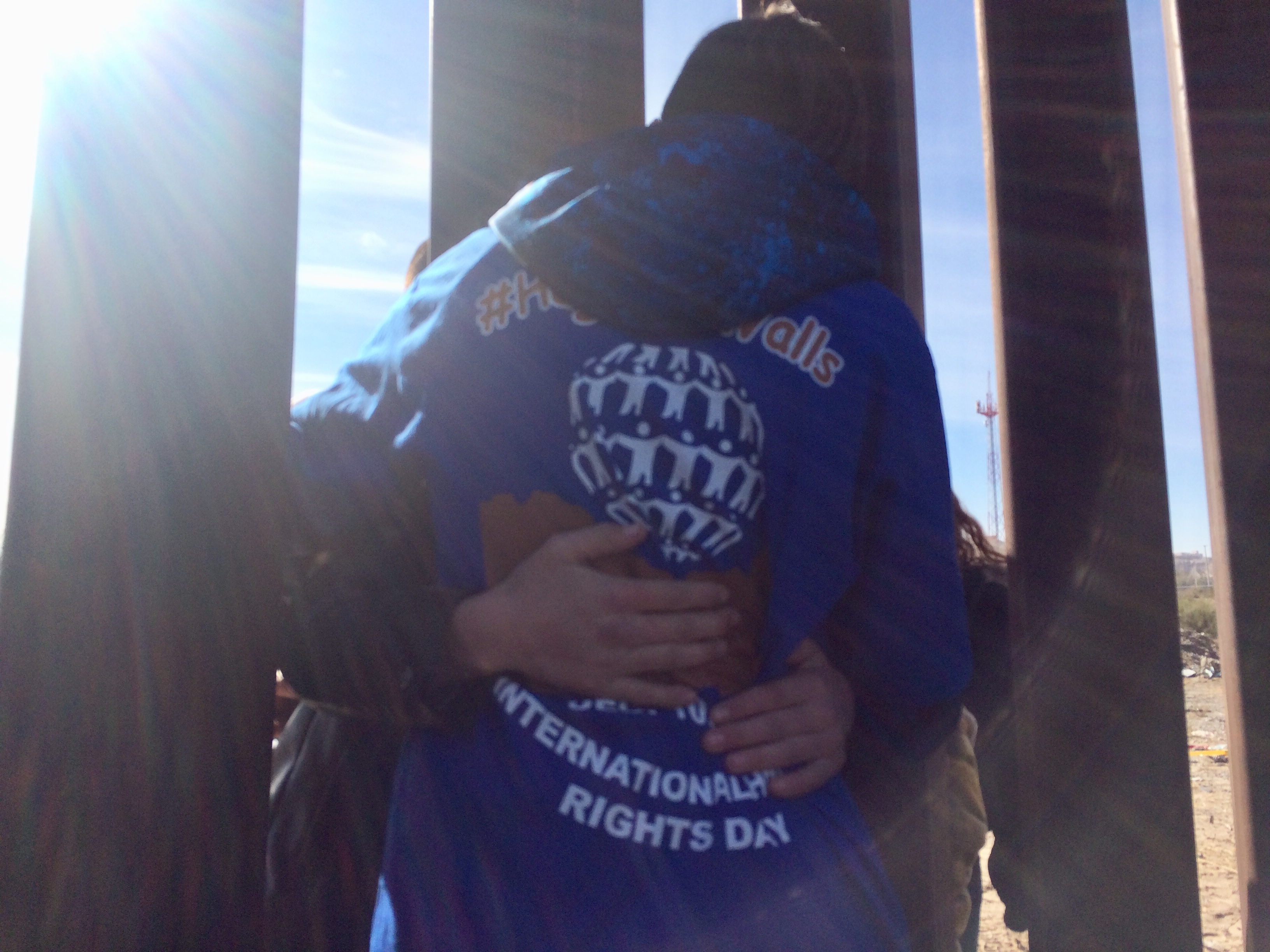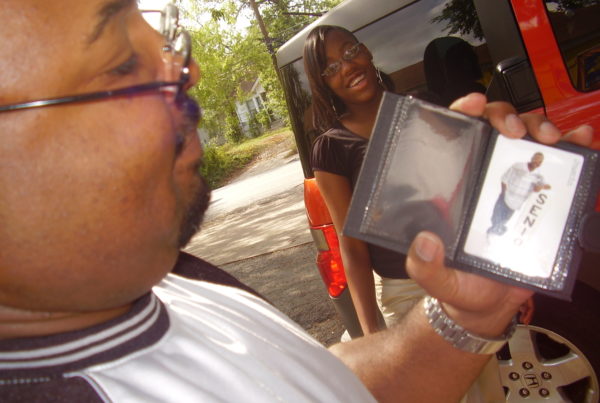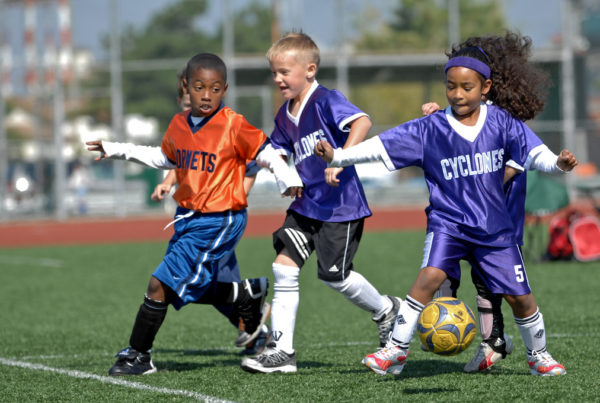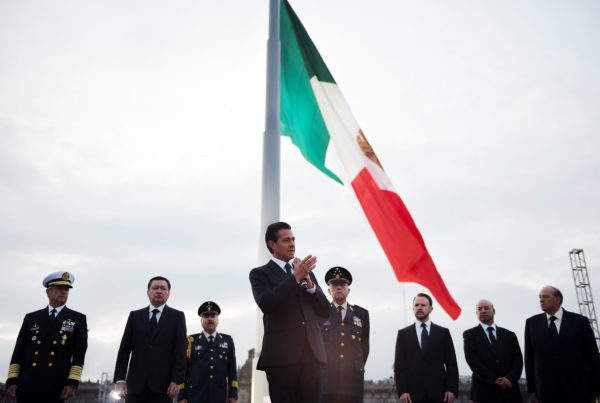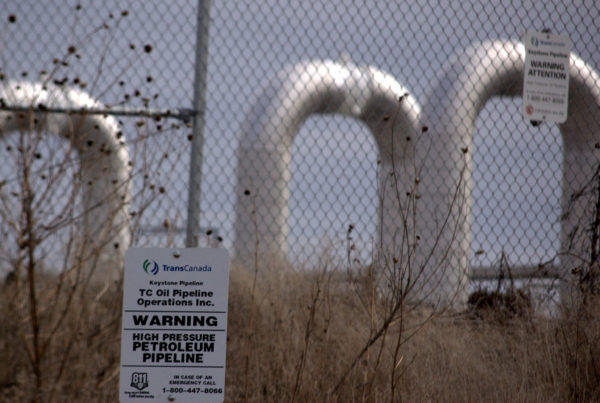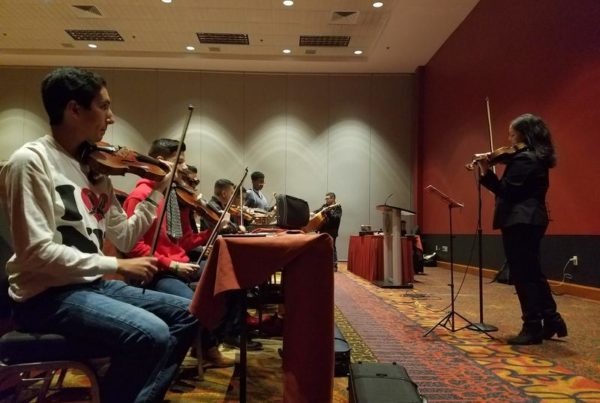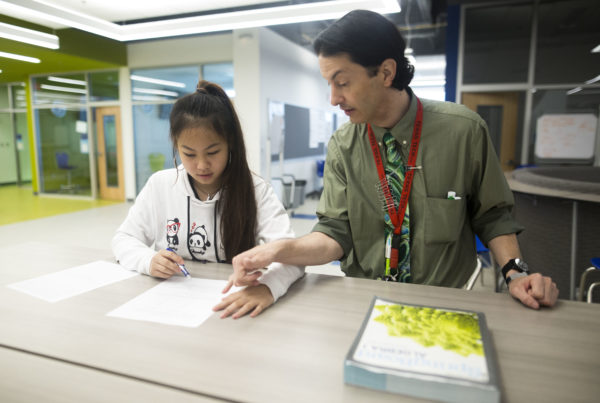Dozens of families separated by their immigration status briefly reunited this weekend just north of El Paso. For a few hours Sunday morning, Border Patrol agents stood back while families embraced through the Sunland Park border fence, a long row of rust-colored columns that divide the U.S. and Mexico.
It’s Jesus Montejo’s 14th birthday. Usually he has a small celebration – a nice meal and a tres leches cake with his family. But this birthday is different. Jesus is seeing his dad for the first time since he was a baby. And meeting his three younger half siblings.
“Yo nervioso y feliz. I’m nervous and happy,” he says.
Jesus stands on the U.S. side of the border, behind thick steel columns and yellow caution tape. He can see his family through the fence, but has to wait his turn to go greet them.
Jesus’ mother, Maribel, say it’s frustrating to wait. “You want to go, to be there,” she says in Spanish. She smooths her teen son’s swoopy brown hair.
Maribel came to the U.S. with Jesus when he was ten months old. She says it’s important for him to know his dad, so today is a special gift. She says she doesn’t need to give her son a big party or something of monetary value but rather something he feels in his heart.
If Maribel and Jesus, or any of the families here, came to the fence on their own, “there’s a big chance that they are gonna be questioned by Border Patrol. Because that’s a security area,” says Fernando Garcia, the executive director of the Border Network for Human Rights. With that El Paso group, Garcia has spent more than a decade working with local border patrol to improve community relations. And that’s led to this events like this one.
“With Border Patrol I have to say that they’ve been honoring the agreement in terms of allowing families to get together…” without asking about immigration status or picking anyone up, Garcia says.
Garcia has helped organize five of these reunions. Usually families aren’t stuck on either side of a security fence. They meet in the middle of the Rio Grande, trudging through mud or wading through ankle-deep water, then hugging each other tight. Hundreds of families come from all over the U.S. and Mexico, to embrace a spouse who’s been deported or a grandchild who can’t cross the border because of her immigration status. But today the river is dangerously high. So the big event has been postponed until May, and a smaller group of local families is meeting at the fence.
Garcia says these reunions are an act of love, but also a form of protest against aggressive immigration policies.
“I mean whenever we hear our discourse here in America, any politician, they talk about family and how sacred family is,” Garcia says. “That family is the basic unit of our society. But then we don’t understand when Latino families are being destroyed, that value is being destroyed.”
Finally it’s Jesus’ turn to approach the fence. The other families clap when they learn it’s his birthday. It’s hard to hear over the cheerful music blasting from a nearby speaker. But Jesus’ dad Jessy, eyes brimming with tears, tells Jesus he loves him. His two little sisters reach through the fence and wrap their arms around his back. Jesus tells them to behave, to study hard, and take good care of the family.
Then, after five minutes, their time is up. Jesus says goodbye.
“This day is special to me because I saw my family. It is my birthday today but family’s more important to me,” Jesus says.
He says he’s learned something important in his fourteen years.
“Money won’t buy you anything but cars,” he says. “It won’t buy happiness. As long as you’re with your family you can be happy.”
He hopes to see his family again in May, in the middle of the Rio Grande. Without the fence between them, he says, he can give them stronger hugs.


